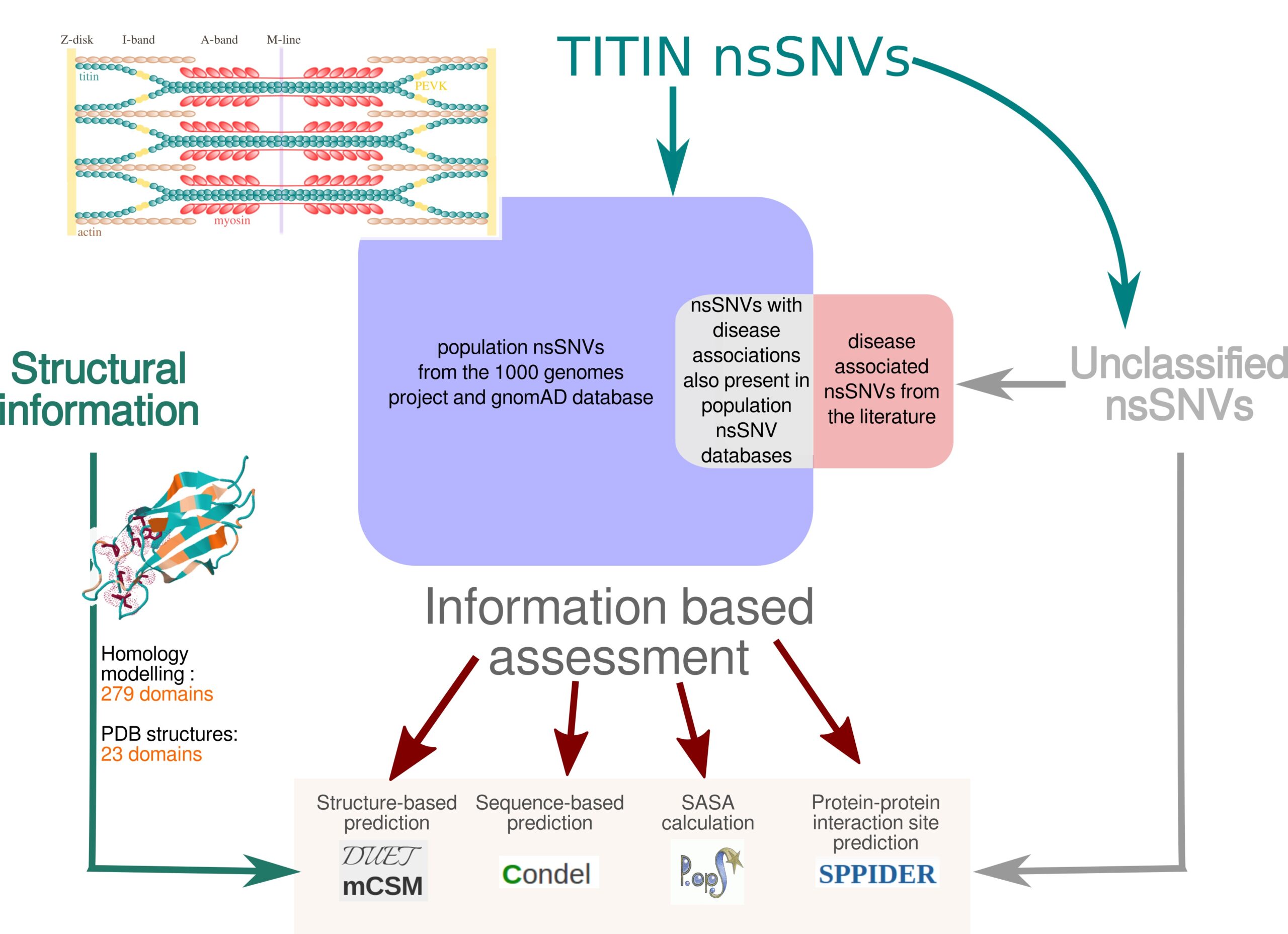How to make sense of your Genetic Test Results for Titin
Changes found in a gene are sometimes called mutations or variants. Some variants in a gene may lead to health problems, while others may not. Not all variants are equally problematic. Many truncating titin variants are clearly associated with a high risk of heart or muscle disease, and these are often classified as “pathogenic” or “likely-pathogenic” in the clinical genetic test report. On the other hand some variants are clearly not harmful and are classified as “benign” or “likely-benign”. Often however, there is insufficient information about variants to tell if they are harmful and these are classified as “variants of uncertain significance” (VUS or VOUS). These variants need follow up by experts.

There are many great doctors, researchers and clinicians working to discover which VUSs cause disease and which do not. This is one reason why it’s really helpful for people like you to register in our patient registry the Congenital Muscle Disease International Registry www.cmdir.org and enroll in research.
Interpreting Titin genetic testing results can be tricky. One reason for this is that Titin is such a huge gene. Titin’s size matters for several reasons: one is that until recently, scientists did not have the technology to tackle such a giant gene. New tools have allowed researchers to learn more about Titin, and doctors are beginning to reveal what kind of changes in Titin are disease-causing and which are not. The second reason is that because Titin is so large and has so many parts (known as exomes), there are many chances for variation.
VUS, now what?
So, if you have been diagnosed with a VUS, how do you figure out if it is the cause of your condition or not? Here are a few recommendations:
Additional testing options:
– If one or two disease causing variants were identified in the same gene, testing is recommended for other relatives who might be at risk to be affected or a carrier. People who have single variants in the Titin gene may be at risk for heart problems and should have a heart check up, even if s/he feels well.
– If two disease causing variants are identified in the same gene, testing of parents or other relatives may be recommended to determine whether each parent carries one of the identified variants.
– For variants of unknown significance, other kinds of clinical testing might be necessary. These tests may provide additional information to aid in the reclassification of a VUS and/or help support or refute the diagnosis of a specific disorder. For Titin, this might include medical tests such as:
- Heart function tests such as EKG and echocardiogram
- Creatine phosphokinase (CPK) blood levels
- Neurological examination
- Muscle imaging including: ultrasound or MRI that can show patterns of weakness
- Breathing tests (including a sleep study and pulmonary function test that measures breathing capacity and cough strength)
Genetic Counseling
Consider meeting with a genetic counselor. You can use the “find a genetic counselor” tool on the National Society of Genetic Counselors website, www.nsgc.org, to contact a genetic counselor. You can search either by in person or telehealth visits. It is ideal to find a genetic counselor that specializes in neuromuscular disorders.
Or search for a genetic counselor in the US at a MDA clinic.
Or search Orphanet for a specialty clinic.
Some Genetic testing options:
–MDA genetic testing program
-Free program via the sponsored Detect Muscular Dystrophy program at Invitae
-Paid genetic testing program through Invitae
–GeneDx genetic testing
-The Genetic Cardiomyopathy Awareness Consortium
-The Rare Genomes Project
For help with confirming a titin genetic diagnosis contact:
Prof Bjarne Udd, MD, PhD
Tampere Neuromuscular Center
Folkhälsan Research Institute, Helsinki bjarne.udd@netikka.fi
Read about genetic information about recessive titinopathy here.

Geneticists can check titin variants in the TITINdb here.
